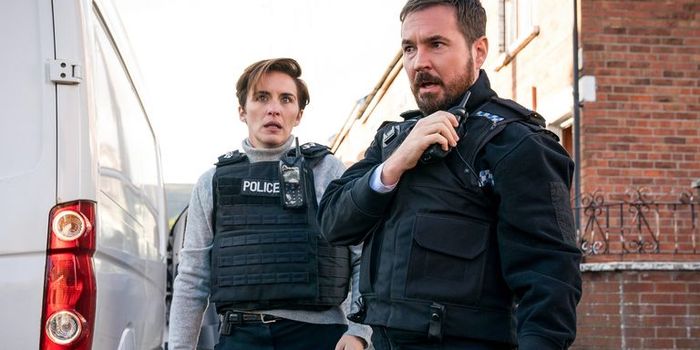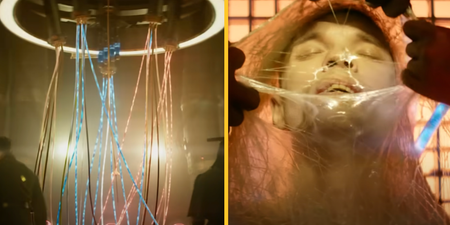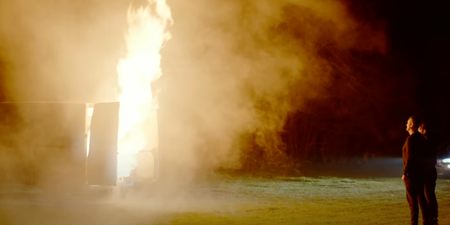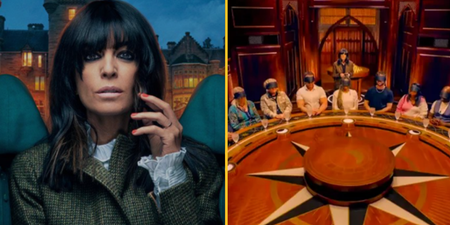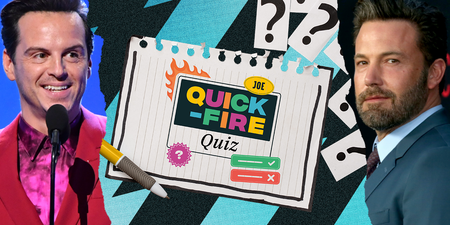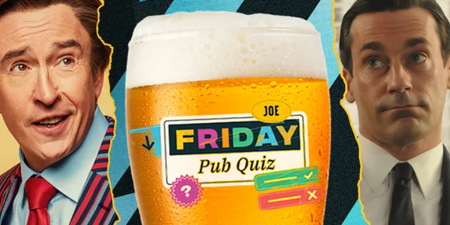The show’s ending divided fans.
Now that the dust has settled on one of the biggest nights of TV in recent memory, here’s a hot take you probably weren’t asking for but are going to get anyway.
Before I get into the nitty-gritty, I’ll make clear what should have been obvious from the headline – this article is going to include spoilers up to and including the final episode of Line of Duty, so don’t venture ahead if you’ve still not found out who H is.
Right, now they’re all gone. Let’s get on with why you should probably be a little more appreciative of what was in actual fact a pretty masterful ending for one of the BBC’s better cop dramas in years.
Fans had built up a great deal of hype around the central mystery of the show – namely, who on Earth was the bent copper ‘H’ at the centre of all the mayhem in AC-12’s investigations?
Theories abounded, some more fantastical than others, about just who could be the criminal mastermind behind the institutional corruption in the force. Could it have been Ted? Carmichael? Steve? That random bloke who looked at Kate a bit funny in series two, episode five?
Last night we finally found out the answer to what we thought was the biggest question of them all – who is H? And oh boy, were people disappointed with what they saw.
Just a cursory glance on social media was enough to alert you to the fact people weren’t happy with the Buckells revelation.
On Twitter trends on Sunday night, Line of Duty and ‘disappointed’ were both trending into the early hours of the morning.
Fans decried the unsatisfying resolution of the fumbling, bumbling idiot being the lynchpin of a sophisticated OCG which had the best cops in the force chasing their tails for the best part of six series.
They said it didn’t make sense, that there must be something else going on, because who would believe that Buckellscould do what he’d done?
But to be angry at that precisely misses the point that writer Jed Mercurio was trying to make. To reveal H as the big-bad everybody was expecting would undermine a wider point Line of Duty was making about corruption, accountability and incompetence in the face of institutions more interested in self-preservation than the public good.
Mercurio isn’t exactly subtle in his message, and there are moments in this final episode where it feels like he’s banging you on the head with a sledgehammer saying ‘ARE YOU PAYING ATTENTION?’.
The Buckells reveal proves that agents of corruption are rarely the conniving, conspiratorial masterminds we like to think they are. They’re often bumbling, incompetent officials who are able to distance themselves emotionally from their reprehensible actions by being just part of a wider problem.
Buckells wasn’t a criminal mastermind. He wasn’t even a very good criminal, he was just a guy whose level of incompetence and general beigeness made him the perfect asset for the OCG to put the proverbial spanner in the works of the police force.
It was precisely because of his underwhelming personality and career history that he was the perfect H.
Similarly, if Mercurio had wrapped up everything neatly in a bow, with a montage at the end of the episode showing Buckells, Carmichael, Osborne and the other bent coppers being sent down with cuffed hands and a grim look on their faces, it would’ve missed the point that often corruption is never truly rooted out.
Corruption is like a mould. It almost always finds a way to grow back, and unless every single spore is eradicated, it will continue to fester in the right conditions – apathy, selfishness, and greed.
This was something Ted knew when he confessed all to Carmichael at the end of the show. It wasn’t just a symbolic shedding of his guilt over his moral and professional failings, but a kind of potential sacrifice of his own career in the service of his wider goal.
The new police stance that institutional corruption didn’t need investigation is one we all knew came from questionable people on high, enforced by the likes of Carmichael et al. But what Ted did in his confession was to lie down on the sword, while simultaneously calling their bluff.
If they investigated Ted giving that £50k to Corbett’s wife, they’d be forced to reveal his blunder in revealing the mole in the OCG, which would lead to wider public questions of police corruption. If not, then that was just confirmation to Ted and the others that there are forces covering up the tangled web of OCG involvement in the force. A perfect catch-22.
We rarely get the answers we want in life, and after the initial disappointment of H’s reveal wore off, I saw the show’s finale for what it really was, and felt a deeper appreciation for what Mercurio had accomplished.
Mother of God, that in itself is an achievement.
LISTEN: You Must Be Jokin’ with Aideen McQueen – Faith healers, Coolock craic and Gigging as Gaeilge
